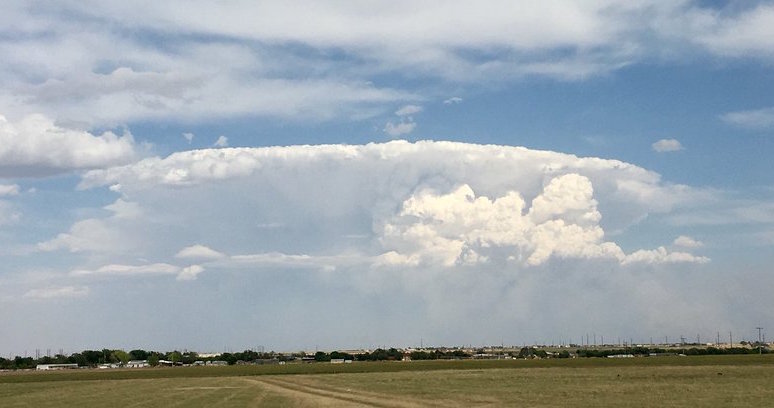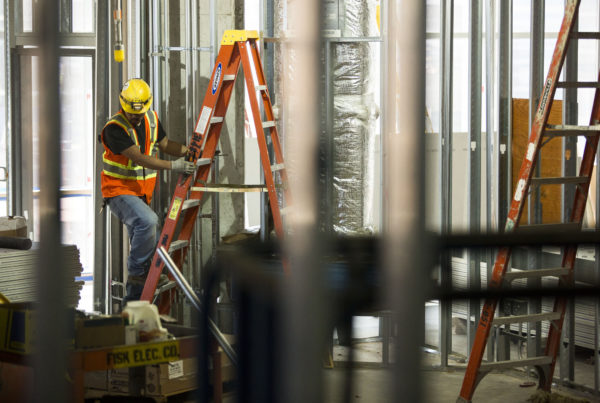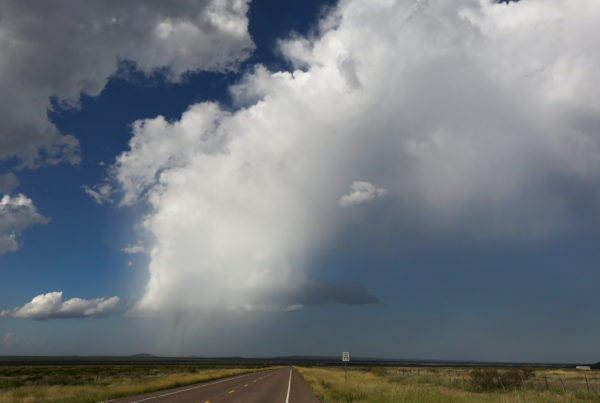As everyone in the Panhandle knows, it’s wildfire season. Just southeast of Amarillo in Armstrong County, a blaze called the Mallard Fire has consumed over 75,000 acres. It’s mostly contained now, but last Friday, the flames were so out of control that they even affected the weather.
The Mallard Fire hit a sweet spot in time, place, and intensity to create what’s called a pyrocumulus cloud. It’s an exceptionally rare weather phenomenon that caught the attention of Stephen Bieda, the science and operations officer at the Amarillo office of the National Weather Service. He says that when a fire becomes hotter than the atmosphere, it rises.
“Because the atmospheric conditions were favorable for it, we ended up becoming a pyrocumulonimbus cloud,” Bieda says. “It is basically a thunderstorm generated from a fire.”
Bieda says the last known occurrence of such a cloud on the High Plains happened in South Dakota in 2000.
Bieda says he saw and photographed the Armstrong County cloud, which dumped one-inch hail on Wheeler, Texas, and lightning in many places. He was surprised to see the cloud in such a flat landscape.
“Terrain tends to help funnel warm air and that smoke up a mountain, and help create these pyrocumulus, or cumulonimbus clouds,” he says. “Seeing it on such flat land like here in the High Plains was unexpected. But the biggest thing was that it was burning in Palo Duro Canyon, which is the second largest canyon system in the United States. It basically had a chimney effect.”
Bieda says the challenge for first responders when a pyrocumulus cloud hits is the lack of precipitation and large amounts of lightning. The cloud spawned 12 wildfires, which required first responders already fighting the Mallard Fire to take on the smaller fires as well.
Written by Shelly Brisbin.
















